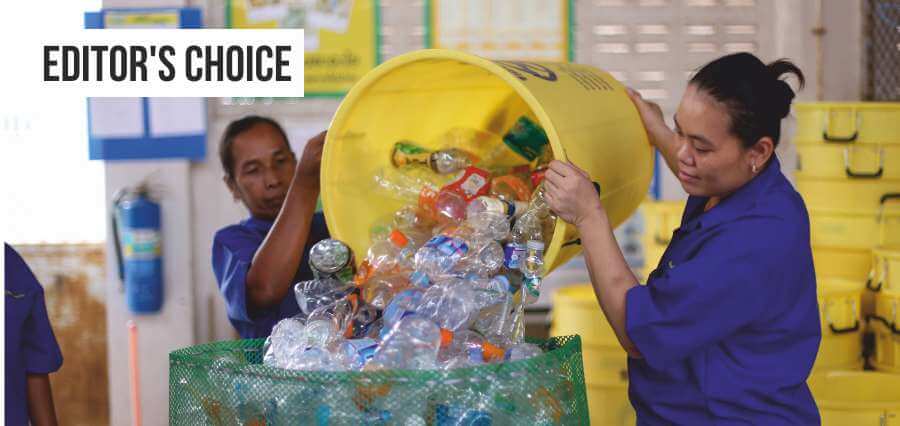India, one of the fastest developing country is struggling to balance its extraordinary growth with sustainable waste management. Waste, to most people, is just that unneeded junk that gets thrown to the curb. The advancement in technology has changed the appearance of the world in the last few decades. Technology has created many industries, producing the liquid and solid wastes that adversely affect the environment. Every year, improper disposal of garbage contributes to devastating epidemics of mosquito-borne malaria, dengue, yellow fever and other potentially fatal diseases. Sometimes deadly virus, spread by rodent urine or feces, have been linked to poor sanitation facilities.
With rapid urbanization, the country is facing a massive waste management challenge. Over 378 million urban people generate 60 million tonnes of municipal solid waste per annum. Only 43 million tonnes (MT) of the waste is collected, 11.8 MT is treated and 31 MT is dumped in landfill sites. Solid Waste Management (SWM) is one among the basic essential services provided by municipal authorities in the country to keep the urban city clean. However, almost all of them deposit solid waste at a dump yard within or outside the city haphazardly.
A Success Story of Biogas to Power Project Set up in Pune by the Maharashtra Government
Recently, Pune Govt. has taken a remarkable step in developing segregated municipal solid waste bio-methane projects those serves not only in generating power, but also help in the organizing and disposal of waste in the city.
It is a known fact that municipal solid waste (MSW) generation in Pune is among the highest in Indian cities with an average of 350-450 gms (with 40% organic matter) of waste generated per capita per day. What’s interesting is that the organic and biodegradable portion of the solid waste is 70 percent which is a significant consideration in the concept of solid waste management. The basic idea behind setting up a bio-methanation plant was to treat the organic waste in a decentralized manner, at its source, in the most environmentally efficient way. This helps the PMC save on transportation costs of such wastes to the landfill site which is 22 km away from the model colony area.
Opening Opportunities for Social Entrepreneurs in India
Waste management is a huge problem but it is also a large opportunity in India. According to a report by market research Company, India waste management market will be a great opening for the entrepreneur. Recently, Clean and Green India conference that took place in Delhi highlighted the opportunities for social enterprises in the Clean and Green India movement with a specific focus on water, waste management, Infrastructure, etc.
- Green Infrastructure
Green infrastructure is vital in providing and connecting life support systems for environments. It includes parks and reserves, gardens, waterways, streets and transport corridors, pathways and greenways, squares and roof gardens and living walls, just to name a few. This provides huge opportunities for the young entrepreneurs in the market to meet India’s green infrastructure needs and beyond.
- Waste Management
In a country like India, liquid and solid waste management are undoubtedly the cornerstone for a clean and green India. It is clearly an area of focus. On the ground, various solutions, best practices, and business models have emerged. In some areas, we see some cases of dramatic turnarounds. In many other cases the situation is only worsening owing to delays and at best inaction. Progress is visible in the space of solid waste management. Any waste management is still largely left to the traditional approach that either doesn’t work or are fraught with gaps in implementation.
The current solutions are infrastructure based, require large investments and are always operating in a catch-up mode. The entrepreneur can tap into this unexploited space with innovate ideas and can churn out great profits from this practically untouched sector of the industry.
Waste management rules in India are based on the principles of “precaution” “sustainable development”, and “polluter pays”. These laws force municipalities to act in an environmentally responsible manner—restoring balance if their actions disrupt it. The increase in a waste generation as a by-product of economic development has led to various subordinate legislation for regulating the manner of disposal and dealing with generated waste are made under the umbrella law of Environment Protection Act, 1986 (EPA). Specific forms of waste are the subject matter of separate rules and require separate compliances, mostly in the nature of authorizations, maintenance of records and adequate disposal mechanisms.
The best mean for efficient waste management is to ensure segregation of waste at source and to ensure that the waste goes through different streams of recycling and resource recovery. Then reduced final residue is deposited scientifically in sanitary landfills. A major limitation of this method is the costly transportation of MSW to far away landfill sites. However, to solve the problem finding the cost of the problem is in priority.


